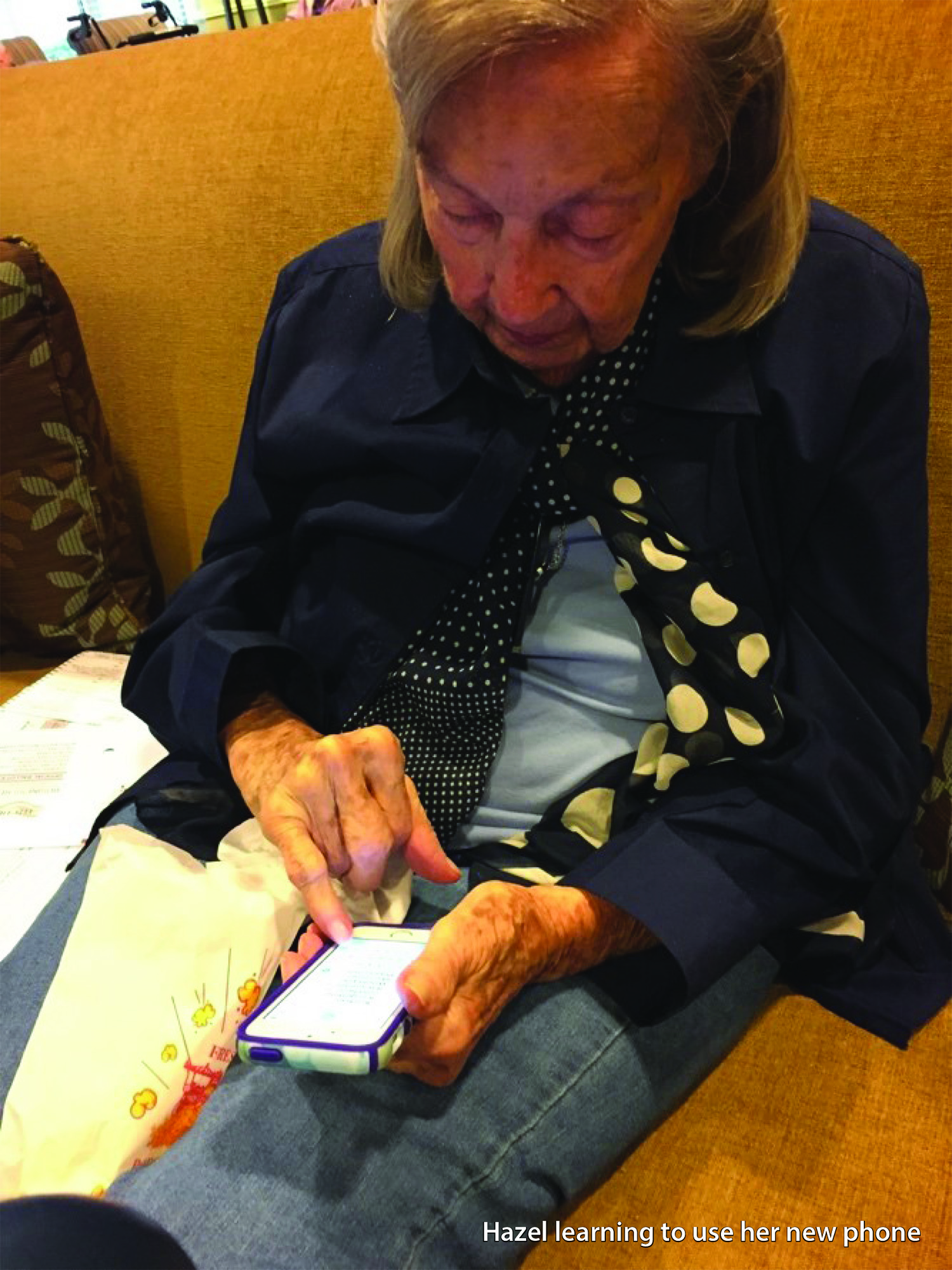Independence in Older Adults

By Beth Adair, Master of Social Work Student, 2016-2017 George S. and Delores Doré Eccles Neighbors Helping Neighbors Scholar
For the past seven months, I have been blessed with the opportunity to work with older adults through the University of Utah College of Social Work’s Neighbor’s Helping Neighbors (NHN) program. This experience has provided insight into the lives of those older adults who wish to remain independent as they work through the changes that come with aging. Many things can take independence from us as we age — disease, accident, loss of hearing or sight, financial problems, change in family situations, and many other physical and social shifts. Our goal at NHN is to work with older adults to find ways to overcome those challenges, where possible, and help them remain independent.
One way that NHN is working to prevent loss of independence is a focus on the mental health of the older adults with whom we work. The Centers for Disease Control (CDC) recently conducted research addressing the importance of mental health for older adults. Depressive disorders can add to complications of already existing health problems, which could easily lead to a loss of independence. The report also states, “Depression is not a normal part of growing older. Rather, in 80% of cases it is a treatable condition.” The report goes on to explain that because depression is normalized as a part of aging, often it is not recognized and goes untreated.
Depression is not the only thing that can take away the independence of an older adult. In order to illustrate the various levels and the situations that effect independence, I would like to talk about two clients who have worked with NHN (names and details have been changed to protect privacy).
Mary has macular degeneration, and has almost completely lost her eye sight. She has been able to remain mostly independent. She has a positive supportive family and friends who are willing to assist her with the activities of daily living she is unable to do alone. She also has a very positive attitude about her situation stating, “Well, there’s nothing I can do to change it, so I may as well accept it!” Her attitude has also allowed her to have the confidence to learn to use technology to remain connected to friends, family, and supports. Those connections provide the support she needs to remain independent. She also has a companion from the Blind Center who comes once a week to support her in learning the new technology on her iPhone.
In contrast, Hazel moved to Utah to be with her son and has very few social supports. Her son has since become estranged and she now lives in a care center. Although her living situation is not fully independent, NHN has been able to provide therapeutic intervention that helped her to make social connections, allowing for more independence to do things like go to the store or social activities away from the care center. Hazel has started to attend church and has begun to make friends in the care center. She is also learning to utilize technology; for her this allows for connection to people back home.
While independence for these two clients looks different, they are two examples of how NHN is able to help connect people to the resources they need to remain as independent as their situation allows. Independence is key for older adults as they work through the changes that come with aging.
Reference:
Centers for Disease Control and Prevention and National Association of Chronic Disease Directors. The State of Mental Health and Aging in America Issue Brief 1: What Do the Data Tell Us? Atlanta, GA: National Association of Chronic Disease Directors; 2008.
